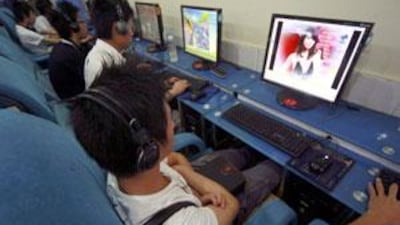Internet users in the UAE reported the fifth highest rate of blocked websites out of nearly 200 countries, according to a new project assessing global online restrictions at home and in the workplace. The statistics showed that 382 different webpages were flagged as "inaccessible" according to UAE users who reported to the Herdict Web project, developed through Harvard University's Berkman Center for Internet & Society.
Herdict lets internet users pool information that becomes part of a perpetually updating database. The webpage, which draws about 3,000 visitors from 199 nations daily, was launched in February. The websites that were found by UAE users to have been blocked ranged from pornography and dating websites to religious pages, said Jillian York, the social media manager for the project.
"But then, you also get some sites where you've got to wonder why they're blocked - like Flickr," she said, referring to the free photo-sharing network. As of today, users in China recorded the most blocked websites with 802, followed by the US with 546, Saudi Arabia with 465 and Germany with 423.
"When someone is reporting a site as 'inaccessible' that means they could be experiencing government censorship, or school or work, or it could just be a server error," Ms York said. Herdict - a portmanteau of "herd" and "verdict" - relies on users' reports to assess worldwide internet restriction trends. Although the UAE is not one of the highest ranking countries in terms of web traffic, its internet users are prolific when it comes to reporting, and have sent 989 reports to Herdict on both accessible and inaccessible websites. Saudi Arabia has logged 3,203 reports by the internet "herd", Iran 1,445 and Bahrain 1,316.
Some sites are blocked within an organisation, while with others access may vary depending on location. The Telecommunications Regulatory Authority, which regulates internet access in the UAE, responded by restating its 13-point guide to prohibited content. mkwong@thenational.ae

